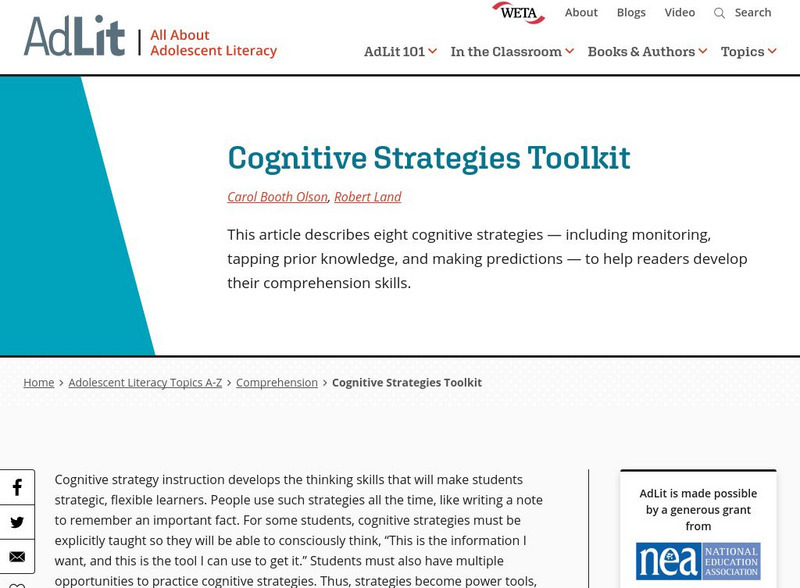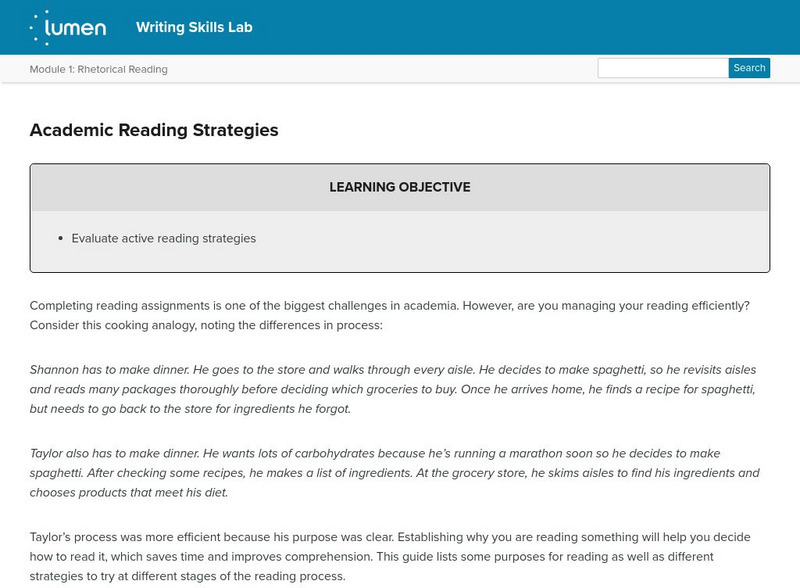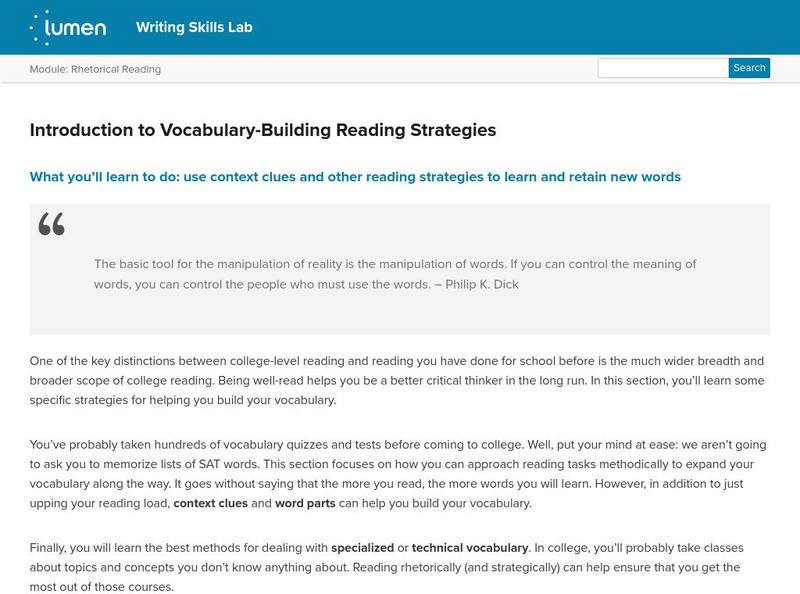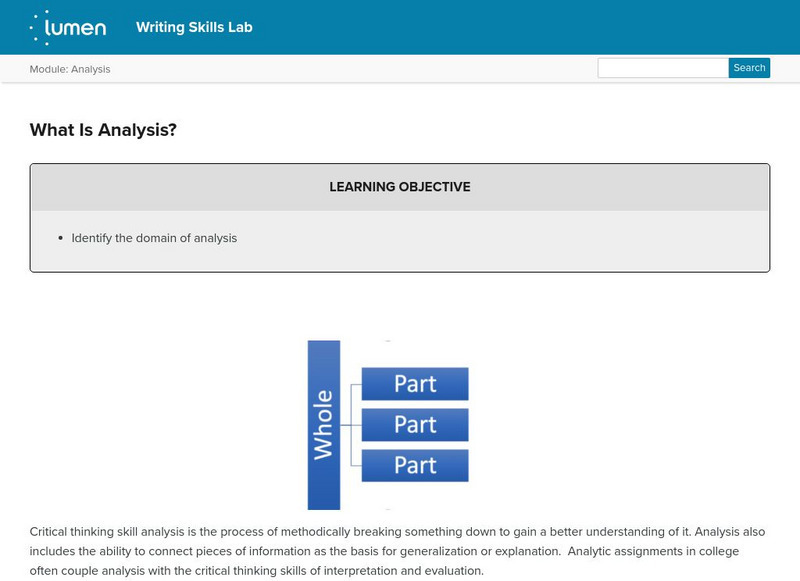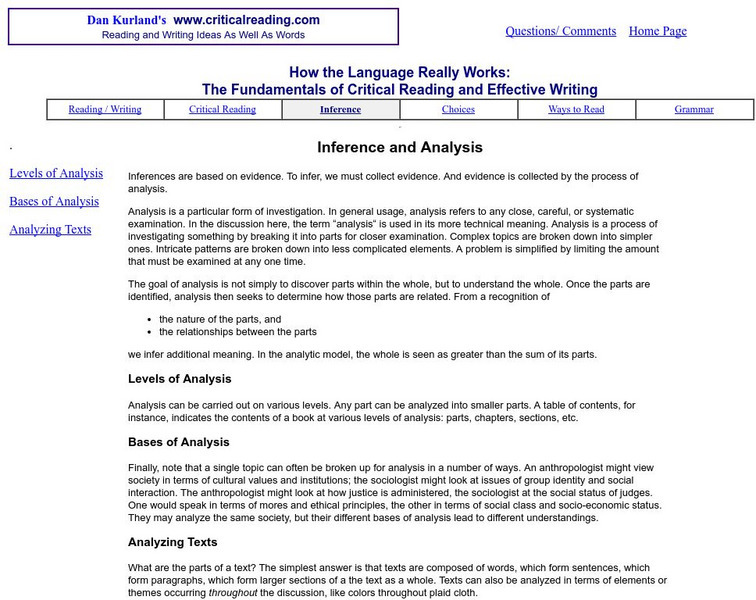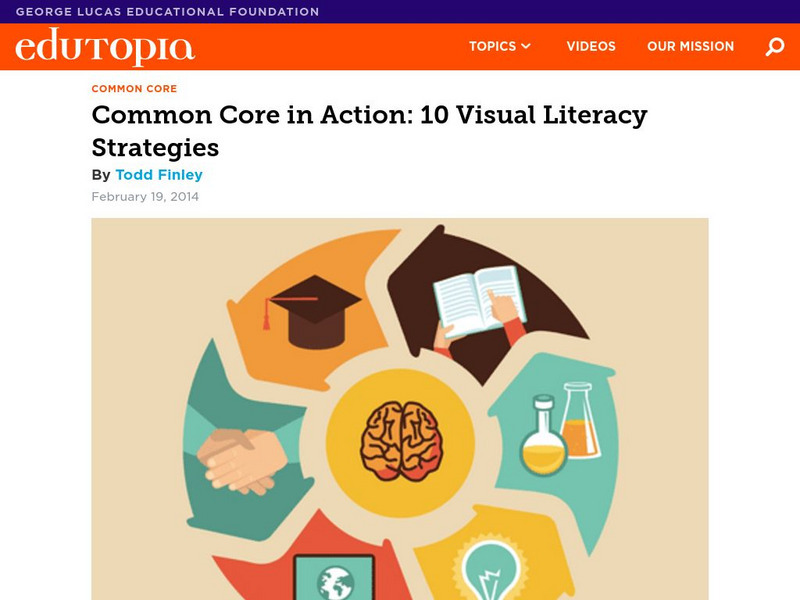Hi, what do you want to do?
Other
Siu Edwardsville: Professional Development Center: Lesson Plan: Inference [Pdf]
Lesson teaching the use of word selection, context, structure, and specific references in making inferences within non-fiction texts.
AdLit
Ad lit.org: What Schools and Students Can Do to Foster College Readiness
If schools and students understand college readiness in a more comprehensive way, they can do more to develop the full range of capabilities and skills needed to succeed in college. Click on Classroom Strategies on the left of the page...
AdLit
Ad lit.org: Cognitive Strategies Toolkit
This article describes eight cognitive strategies - including monitoring, tapping prior knowledge, and making predictions - to help readers develop their comprehension skills.
CommonLit
Common Lit: How Resilience Works
A learning module that begins with "How Resilience Works" by Diane Coutu, accompanied by guided reading questions, assessment questions, and discussion questions. The text can be printed as a PDF or assigned online through free teacher...
Lumen Learning
Lumen: Critical Reading: Specialized Reading Strategies
This lesson focuses on specialized reading strategies such as online reading, reading in math, science, etc., and reading charts and graphs. It provides text, videos, charts and graphs, graphics, and a self-check.
Lumen Learning
Lumen: Critical Reading: Reading Strategies
This lesson focuses on reading strategies including scanning, skimming, SQ3R, High-5 Reading Strategies, technology, and rhetorical context. It includes text information and videos.
Lumen Learning
Lumen: Rhetorical Reading: Strategies for Active Reading
This lesson focuses on strategies for active reading such as annotating your texts, reading multiple times, and using your prior knowledge.
Lumen Learning
Lumen: Rhetorical Reading: Academic Reading Strategies
This instructional activity focuses on reading strategies including understanding your purpose, and before, during, and after reading strategies.
Lumen Learning
Lumen: Rhetorical Reading: Intro to Vocabulary Building Reading Strategies
This article explains in general how to build vocabulary using reading strategies such as context clues.
Lumen Learning
Lumen: Rhetorical Reading: Putting It Together: Rhetorical Reading
This is a summary of the previous lessons having to do with rhetorical reading including rhetorical context, previewing text, actively reading, using context clues, and reading voraciously.
Lumen Learning
Lumen: Writing Skills: Conclusions
This lesson focuses on strategies for writing effective conclusions. It provides a list of strategies and a sample essay.
Lumen Learning
Lumen: Analysis: What Is Analysis?
This lesson focuses on analysis including defining analysis and listing the essential skills of analysis.
Lumen Learning
Lumen: Analysis: Suspend Judgment
This article focuses on the need to suspend judgment and keep an open mind while analyzing a situation or researching a topic.
Lumen Learning
Lumen: Analysis: Evidence
This lesson focuses on evidence in the analysis including being selective with evidence, being clear and explicit, and moving past obvious interpretations.
Lumen Learning
Lumen: Using Sources: Paraphrase and Summary
This lesson focuses on how to integrate source material using paraphrase and summary and the differences between the two. It also provides a practice exercise.
Lumen Learning
Lumen: Using Sources: Putting It Together: Using Sources
This is a summary of the lessons on integrating credible sources using paraphrase, summary, and quotations and citing sources. Click on the Next button on the bottom right to learn about Why It Matters: Multimodality; you will have the...
Other
Critical Reading: Inference and Analysis
This site defines inference and analysis. It explains how analysis works, goals of analysis, levels, bases, and how to analyze text. RL.9-10.1, RL.11-12.1, RI.9-10.1 textual evidence and inferences, RI.11-12.1 textual evidence and...
Pennsylvania State University
Pennsylvania State University (Dr. Mc Clennen): How to Do a Close Reading
This guide is written for college students, but should be very useful for upper level high school students as well. The writer first describes fourteen steps to take in doing a close reading, then provides six pieces of advice on how to...
Other
Learning Design Collaborative: Cer: Claim, Evidence, and Reasoning
Students write a scientific claim that is backed up by evidence and supported by scientific reasoning. Base your answer on your reading of a data table.
Texas Education Agency
Texas Gateway: Informational Text: Analyze Graphical Sources: Practice 2
[Accessible by TX Educators. Free Registration/Login Required] In this lesson, you will learn how to evaluate the clarity and visual appeal of images and other graphic elements included in a reading text. Practice exercises are included.
Texas Education Agency
Texas Gateway: Reading Comprehension Across Genres: Annotate for Meaning
This lesson focuses on Annotation, a "writing-to-learn" strategy. It consists of writing explanatory notes and critical (analytical) commentary to yourself. Annotating text consists of two steps: (1) underlining, highlighting, circling,...
Edutopia
Edutopia: Common Core in Action: 10 Visual Literacy Strategies
Explicitly teach a collection of competencies that will help students think through, think about, and think with pictures.
Khan Academy
Khan Academy: Necessary Assumptions Learn More
Necessary assumption questions ask you to determine what has to be true - but was never explicitly stated - in order for an argument to work. Stated differently, if a necessary assumption were discovered to be false, the argument would...
Khan Academy
Khan Academy: Strongly Supported Inferences Quick Guide
A quick guide to approaching questions that ask you to identify something that is "strongly supported." On questions that ask you to find the choice that is most strongly supported by a stimulus, the answer does not have to be...





![Siu Edwardsville: Professional Development Center: Lesson Plan: Inference [Pdf] Lesson Plan Siu Edwardsville: Professional Development Center: Lesson Plan: Inference [Pdf] Lesson Plan](https://static.lp.lexp.cloud/images/attachment_defaults/resource/large/FPO-knovation.png)
